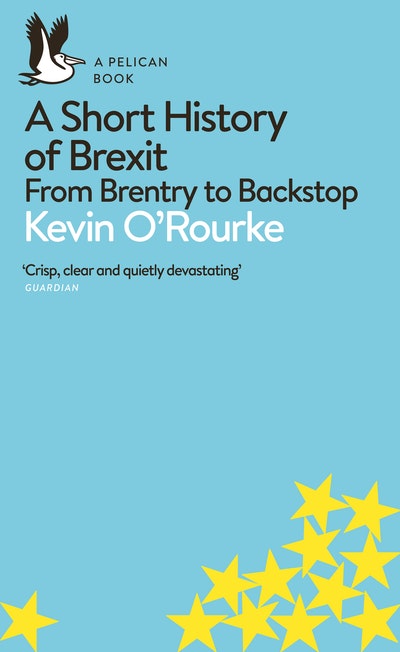- Published: 24 January 2019
- ISBN: 9780241398333
- Imprint: Penguin eBooks
- Format: EBook
- Pages: 400
A Short History of Brexit
From Brentry to Backstop
- Published: 24 January 2019
- ISBN: 9780241398333
- Imprint: Penguin eBooks
- Format: EBook
- Pages: 400
Valuable on the backstory is Kevin O'Rourke's A Short History of Brexit (Pelican). As an Irish historian who divides his time between a French village and All Souls College, Oxford, O'Rourke is a quintessential Remainer; but he's not blind to the EU's supranational ambitions.
Political Books of the Year, Prospect
He recounts the history of British involvement with Europe over the last 60 years with unique concision and clarity. He searches for the motivations behind the Brexit vote, parsing arguments that it was the inevitable result of structural economic factors, that it stemmed from a misplaced backlash against rising inequality, or that it was just a fluke brought about by political miscalculation and opportunism. Ever the professor, O'Rourke hints that all these views contain some truth.
Andrew Moravcsik, Foreign Affairs
Crisp, clear and quietly devastating
Fintan O'Toole, Guardian
An excellent and authoritative exploration of the roads to Brexit, one that is erudite, rigorous and highly readable
Tony Connelly, Irish Times
A handy primer on the events and undercurrents that led to our present discontent
Stephen Bush, Observer
Unravells the long strands of history that have led to Brexit and its current complications ... he illuminates not only the Irish problem, but the entirety of Britain's strange, ambivalent relationship with the EU
Martha Gill, Times Literary Supplement
a very readable account of how we got here - including contemporary issues such as the financial crash and the refugee crisis, and longer-term factors such as British attitudes to free trade, parliamentary sovereignty and empire
Gideon Rachman, Financial Times Books of the Year


